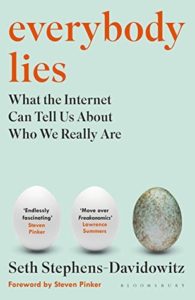Beck Dorey-Stein’s “From the corner of the Oval office”
 “The Vagiants,” she says with a half smile. Hope goes on to explain that after President Obama took office in 2009, there was widespread criticism about the lack of female senior staffers in an administration that had championed diversity on the campaign trail. By the time I arrived in 2012, the male-female ratio had dramatically improved– there were two female deputy chiefs of staff, a female photographer, a female National Security Council representative and a female ambassador to the United Nations. “Some of the most powerful women in the Obama administration,” Hope tells me, “Call themselves Vagiants.”
“The Vagiants,” she says with a half smile. Hope goes on to explain that after President Obama took office in 2009, there was widespread criticism about the lack of female senior staffers in an administration that had championed diversity on the campaign trail. By the time I arrived in 2012, the male-female ratio had dramatically improved– there were two female deputy chiefs of staff, a female photographer, a female National Security Council representative and a female ambassador to the United Nations. “Some of the most powerful women in the Obama administration,” Hope tells me, “Call themselves Vagiants.”
Beck Dorey-Stein’s memoir From the Corner of the Oval Office: One Woman’s True Story of her Accidental Career in the Obama White House is an account of a little more than four years spent as a stenographer in the Obama White House. From being unemployed, struggling to hold three jobs including that of a tutor at the posh Quaker school Sidwell Friends School, Beck Dorey-Stein unexpectedly finds herself working at the White House. She was so desperate to seek a “proper” job that she answered a newspaper advertisement. She wanted a job that allowed her to pay bills without having to carry three sets of clothes and different pairs of shoes in her knapsack to meet the requirements of every part time job she did, every single day. Apparently it was not just the written test and interview that she had cleared but also the security clearance as the woman hiring Beck said [to paraphrase], “if you can get security clearance to be on the same school campus as President Obama’s daughter, Malia, then you are a good candidate for the stenographer’s job at the White House.”
Once ensconced in the White House, Beck is on an adrenaline-pumping job, where she has a ringside view of the press conferences, summits, meetings, etc. She travels on the president’s airplane and helicopter. She travels to more than sixty countries clocking hundreds and thousands of miles. She flirts with the secret service men. She gets the gossip about various presidents and their lives straight from those who witnessed it; these could be the journalists covering the White House and travelling regularly with the president or from the White House staff.
From the corner of the Oval Office is a delightful account by a young woman who seems to be in a perpetual state of amazement about her job. She is ever thankful for it but also starry-eyed about the world she inhabits. If it had not been based on true events, at times it would have read like a “Chick lit” novel for its emotional roller coasters, its preoccupation with affairs of the heart etc. There is little divulged in terms of political commentary or even insights about having worked in such an unusual place. It skims the surface of a very public office, revealing little that is not already known in the public domain. Be that as it may From the corner of the Oval Office is a good precursor to Michelle Obama’s memoir Becoming to be released later in the year by the same publishers, Penguin Random House.
amazement about her job. She is ever thankful for it but also starry-eyed about the world she inhabits. If it had not been based on true events, at times it would have read like a “Chick lit” novel for its emotional roller coasters, its preoccupation with affairs of the heart etc. There is little divulged in terms of political commentary or even insights about having worked in such an unusual place. It skims the surface of a very public office, revealing little that is not already known in the public domain. Be that as it may From the corner of the Oval Office is a good precursor to Michelle Obama’s memoir Becoming to be released later in the year by the same publishers, Penguin Random House.
Beck Dorey-Stein writes in November 2015 about the presidential canditates:
It’s November 2015. Fuck Trump — this time next year, he will have lost the election and ridden back up his stupid gold escalator, gripping the sides with his tiny white-knuckled hands because he’s terrified of stairs. He will never be heard from again except when he tweets about Kristen Stewart’s love life. He will disappear, and the world will be better for it.
From the corner of the Oval Office is frothy and light. Pick it up for a good lark.
Beck Dorey-Stein From the corner of the Oval Office: One Woman’s True Story of Her Accidental Career in the Obama White House Transworld Publishers, an imprint of Penguin Random House, London, 2018. Pb. pp. 336
26 June 2018

